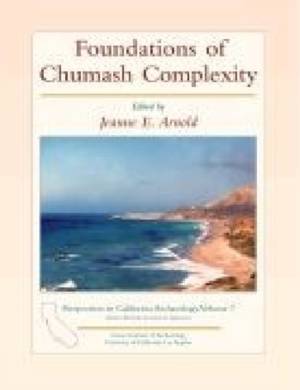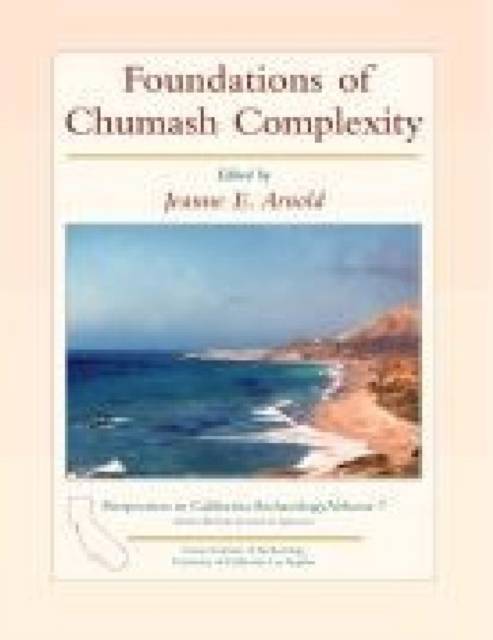
- Afhalen na 1 uur in een winkel met voorraad
- Gratis thuislevering in België vanaf € 30
- Ruim aanbod met 7 miljoen producten
- Afhalen na 1 uur in een winkel met voorraad
- Gratis thuislevering in België vanaf € 30
- Ruim aanbod met 7 miljoen producten
Zoeken
Foundations of Chumash Complexity
€ 10,95
+ 21 punten
Omschrijving
This volume highlights the latest research on the foundations of sociopolitical complexity in coastal California. The populous maritime societies of southern California, particularly the groups known collectively as the Chumash, have gone largely unrecognized as prototypical complex hunter-gatherers, only recently beginning to emerge from the shadow of their more celebrated counterparts on the Northwest Coast of North America. While Northwest cultures are renowned for such complex institutions as ceremonial potlatches, slavery, cedar plank-house villages, and rich artistic traditions, the Chumash are increasingly recognized as complex hunter-gatherers with a different set of organizational characteristics: ascribed chiefly leadership, a strong maritime economy based on oceangoing canoes, an integrative ceremonial system, and intensive and highly specialized craft production activities. Chumash sites provide some of the most robust data on these subjects available in the Americas. Contributors present stimulating new analyses of household and village organization, ceremonial specialists, craft specializations and settlement data, cultural transmission processes, bead manufacturing practices, watercraft, and the acquisition of prized marine species.
Specificaties
Betrokkenen
- Uitgeverij:
Inhoud
- Aantal bladzijden:
- 208
- Taal:
- Engels
- Reeks:
- Reeksnummer:
- nr. 7
Eigenschappen
- Productcode (EAN):
- 9781931745574
- Verschijningsdatum:
- 1/01/2005
- Uitvoering:
- Hardcover
- Formaat:
- Genaaid
- Afmetingen:
- 218 mm x 279 mm
- Gewicht:
- 839 g

Alleen bij Standaard Boekhandel
+ 21 punten op je klantenkaart van Standaard Boekhandel
Beoordelingen
We publiceren alleen reviews die voldoen aan de voorwaarden voor reviews. Bekijk onze voorwaarden voor reviews.










